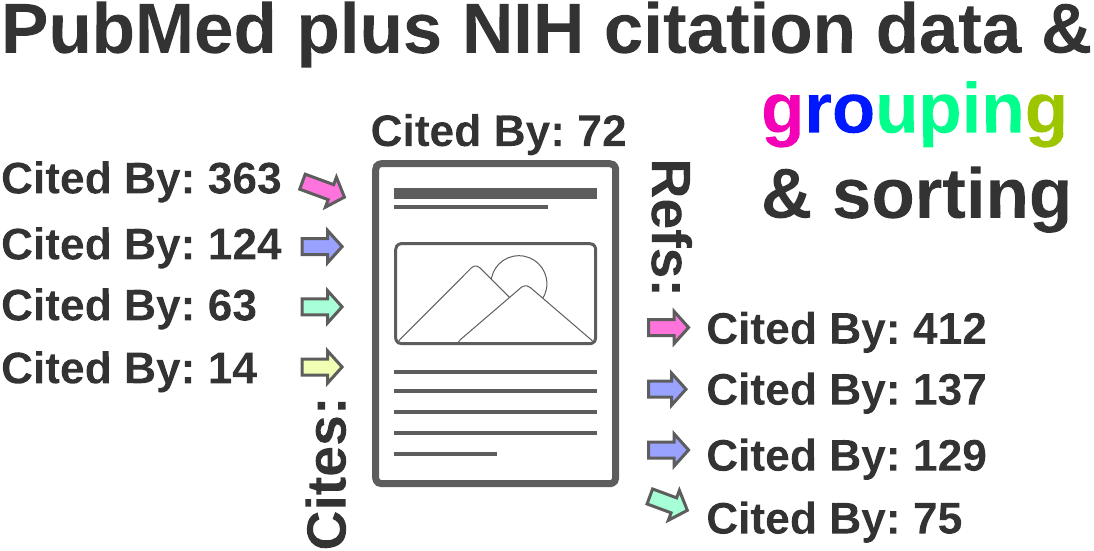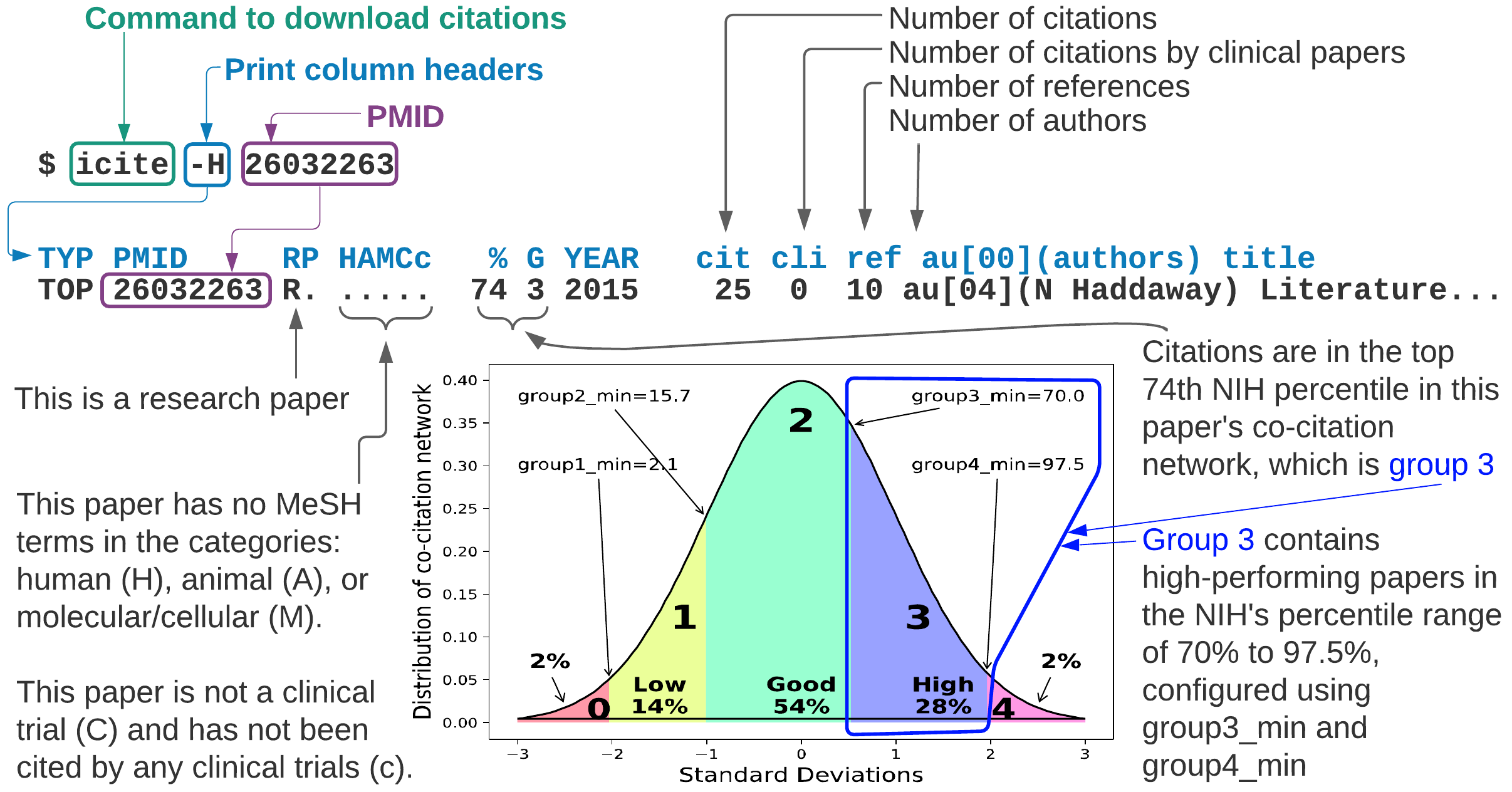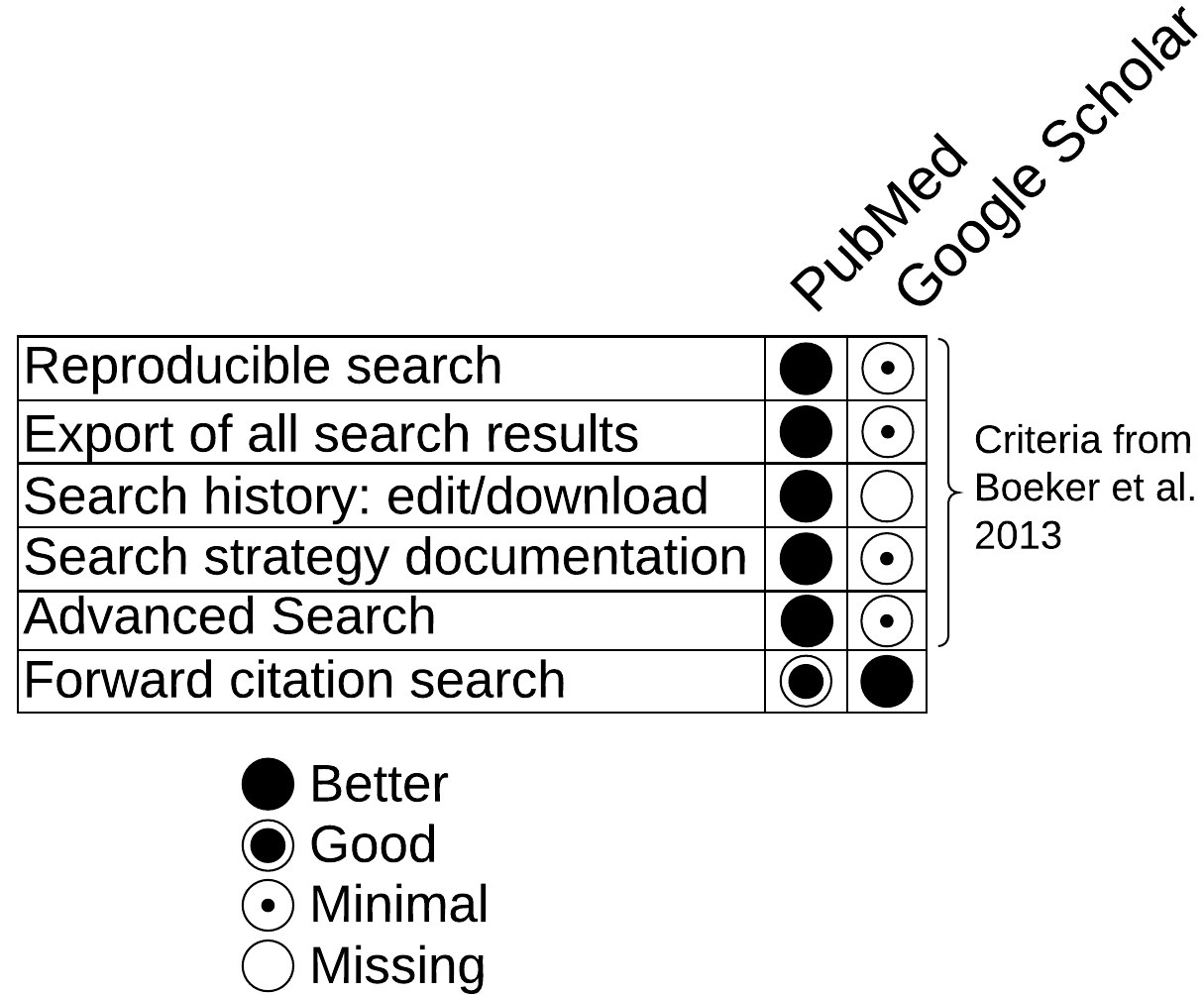PubMed ID (PMID) Cite

Turbocharge a PubMed literature search in biomedicine, biochemistry, chemistry, behavioral science, and other life sciences by linking citation data from the National Institutes of Health (NIH) with PubMed IDs (PMIDs) using the command line rather than clicking and clicking and clicking on Google Scholar “Cited by N” links.
This open-source project is part of a peer-reviewed paper published in Research Synthesis Methods. Please cite if you use pmidcite in your research or literature search.
Usage
- Download citation counts and data for a research paper
- Forward citation search: following a paper’s Cited by links or Forward snowballing
- Backward citation search: following the links to a paper’s references or Backward snowballing
Download citation data for a research paper
$ icite -H 26032263
- This paper (PMID 26032263) has
25citations,10references, and4authors. - This paper is performing well (
74th percentile) compared to its peers.

NIH percentile
This paper is performing well (74th percentile in column %) compared to its peers.
The NIH percentile grouping (column G) helps to
highlight the better performing papers in groups 2, 3, and 4 by
sorting the citing papers by group first, then publication year.
The sort places the lower performing papers in groups 0 or 1 at the back.
New papers appear at the beginning of a sorted list, no matter how many citations they have to better facilitate researchers in finding the latest discoveries.
The grouping of papers by NIH percentile grouping is a novel feature created by dvklopfenstein for this project.
Forward citation search
Also known as following a paper’s Cited by links or Forward snowballing
icite -H; icite 26032263 --load_citations | sort -k6 -r
or
icite -H; icite 26032263 -c | sort -k6 -r
Backward citation search
Also known as following links to a paper’s references or Backward snowballing
$ icite -H; icite 26032263 --load_references | sort -k6 -r
or
$ icite -H; icite 26032263 -r | sort -k6 -r
PubMed vs Google Scholar

In 2013, Boeker et al. recommended that a scientific search interface contain five integrated search criteria. PubMed implements all five, while Google did not in 2013 or today.
Google’s highly popular implementation of the forward citation search through their ubiquitous “Cited by N” links is a “Better” experience than the PubMed’s “forward citation search” implementation.
But if your research is in the health sciences and you are amenable to consider working from the command line, you can use PubMed in your browser plus citation data downloaded from the NIH using the command-line using pmidcite. The NIH’s citation data includes a paper’s ranking among its co-citation network.
What is in PubMed? Take a quick tour

PubMed is a search interface and toolset used to access over 30.5 million article records from databases like:
- MEDLINE: a highly selective database started in the 1960s
- PubMed Central (PMC): an open-access database for full-text papers that are free of cost
- Additional content like books and articles published before the 1960s
Usage details
Download citations for all papers returned from a PubMed search
Make a copy of src/bin/dnld_pmids.py and add your PubMed search to the end of the queries list.
There are two PubMed searches in this example:
systematic review AND "how to"[TI]Orcinus Orca Type D
The PubMed search results are saved to specified filenames such as systematic_review.txt to be grepped and sorted.
def main():
"""Download PMIDs returned for a PubMed query. Write an iCite report for each PMID"""
queries = [
# Output filenames PubMed query
# ----------------- -----------------------------------
('systematic_review.txt', 'systematic review AND "how to"[TI]'),
('rarely_seen_killer_whale.txt', 'Orcinus Orca Type D'),
]
obj = PubMedQueryToICite(force_dnld=True)
dnld_idx = obj.get_index(sys.argv)
obj.run(queries, dnld_idx)
To have better access to PubMed search results,
get n NCBI API key using these instuctions:
https://ncbiinsights.ncbi.nlm.nih.gov/2017/11/02/new-api-keys-for-the-e-utilities
Installation
To install from PyPI
pip3 install pmidcite
To install locally
$ git clone https://github.com/dvklopfenstein/pmidcite.git
$ cd ./pmidcite
$ pip3 install .
Contact
dvklopfenstein@protonmail.com
https://orcid.org/0000-0003-0161-7603
How to Cite
If you use pmidcite in your research, please cite paper 1 (pmidcite) and paper 3 (NIH citation data).
Please also consider reading and citing Gusenbauer’s response (paper 2) about improving search for all during the information avalanche of these times:
-
Commentary to Gusenbauer and Haddaway 2020: Evaluating Retrieval Qualities of PubMed and Google Scholar
Klopfenstein DV and Dampier W
2020 | Research Synthesis Methods | PMID: 33031632 | DOI: 10.1002/jrsm.1456 | pdf -
Gusenbauer’s response:
What every Researcher should know about Searching – Clarified Concepts, Search Advice, and an Agenda to improve Finding in Academia
Gusenbauer M and Haddaway N
2020 | Research Synthesis Methods | PMID: 33031639 | DOI: 10.1002/jrsm.1457 | pdf -
The NIH citation data used by pmidcite – Scientific Influence, Translation, and Citation counts:
The NIH Open Citation Collection: A public access, broad coverage resource
Hutchins BI … Santangelo GM
2019 | PLoS Biology | PMID: 31600197 | DOI: 10.1371/journal.pbio.3000385
References
Please consider reading and citing the paper [4] which inspired the creation of pmidcite [1] and the authors’ response to our paper [2]:
- Which Academic Search Systems are Suitable for Systematic Reviews or Meta-Analyses? Evaluating Retrieval Qualities of Google Scholar, PubMed and 26 other Resources
Gusenbauer M and Haddaway N
2019 | Research Synthesis Methods | PMID: 31614060 | DOI: 10.1002/jrsm.1378
Mentioned in this README are also these outstanding contributions:
-
Relative Citation Ratio (RCR): A New Metric That Uses Citation Rates to Measure Influence at the Article Level
Hutchins BI, Xin Yuan, Anderson JM, and Santangelo, George M.
2016 | PLoS Biology | PMID: 27599104 | DOI: 10.1371/journal.pbio.1002541 -
Google Scholar as replacement for systematic literature searches: good relative recall and precision are not enough
Boeker M et al.
2013 | BMC Medical Research Methodology | PMID: 24160679 | DOI: 10.1186/1471-2288-13-131 -
Best Match: New relevance search for PubMed
Fiorini N … Lu Zhiyong
2018 | PLoS Biology | PMID: 30153250 | DOI: 10.1371/journal.pbio.2005343
PDFs
- PMIDCITE Manuscript with the original text box formatting
- Supplemental Material
- Gusenbauer’s Response
Contact
dvklopfenstein@protonmail.com
https://orcid.org/0000-0003-0161-7603
Copyright (C) 2019-present pmidcite, DV Klopfenstein. All rights reserved.

